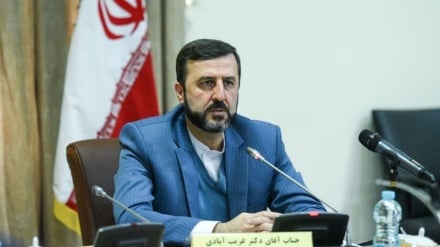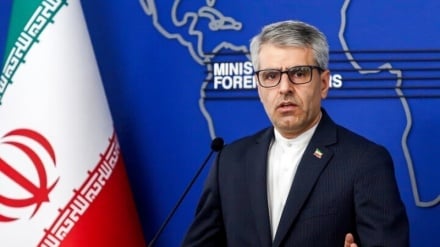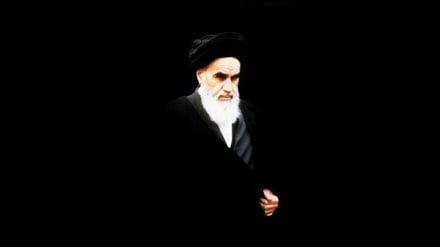Karbala Epic in Farsi Literature
Farsi literature is full of beautiful poetry and prose on Imam Hussein and history's most heartrending tragedy that happened in the year 61 AH at Karbala.
Epic, message and grief are the three main elements of Karbala. Iranian poets and writers have made use of these concepts to express their thoughts and feelings to portray the great uprising of Imam Hussein and show their love to the progeny of the Prophet. As per the requirements of time, they have looked at the event in an epic manner while at other times they have expressed it in an emotional way.
Kasai Marvazi was one of the poets of the 4th century AH who composed poems for Moharram and Ashura. He is considered as the first one who composed poems about Imam Hussein in Farsi. Other poets who are famous in this regard are Sanai, Attar Neishaburi, Salman Savaji, Mowlana, Khaju-ye Kermani, Mohtasham Kashani and Omman Samani. In addition, many contemporary poets have composed poems on Ashura but not all of them can be touched upon in a brief radio program.
Mohtasham Kashani is the famous poet of the 10th century AH. His long elegiac poem on Moharram and Ashura has become very famous as it has been printed on placards, flags and draperies in mosques and Husseinies for several decades. Part of it reads,
باز این چه شورش است که در خلق عالم است باز این چه نوحه و چه عزا و چه ماتم است
گر خوانمش قیامت دنیا عجیب نیست این رستخیز عام که نامش محرم است
What an uproar is this again among the world people?
What an elegy, mourning and grief is this again?
No surprise if I call it Doom's Day of this world,
This public resurrection that is called Moharram.
Mohtasham considers Moharram as a resurrection that has encompassed not just human beings but the entire creatures of this world and heavens. He addressing himself says,
خاموش محتشم که دل سنگ آب شد بنیاد صبر و خانه طاقت خراب شد
خاموش محتشم که از این شعر خون چکان در دیده اشک مستمعان خون ناب شد .
Shush Mohtasham, as stone's heart has melted
Patience is in ruins as no ability is left
Shush Mohtasham, as this bloody poem
Into blood has turned the listeners' tears
Omman Samani was the poet of the mid-13th and early 14th century AH who has catapulted to fame as an outstanding poet of Ashura by composing the poetical divan called Ganjinat ul-Asraar. The reason for the fame of this divan is that he has expressed his views very plainly. Omman Samani succeeded to convey the farfetched gnostic notions to the public and depict abstract concepts as tangible realities. Omman starts Ganjinat ul-Asraar from the beginning of creation when the drink of divine love was being distributed among the creatures, everyone gained and drank part of it according to their capacity and potential; while it was Imam Hussein (AS) who drank it to the las drop. Metaphorically, this means that he accepted the entire divine tribulations.
Omman Samani considers Ashura as a field of journey where travelers of perfection travel on it to attain their Beloved and Ultimate Goal. Imam Hussein is the Master in this field. In Omman's view, the course from Medina to Karbala is indeed the seven phases or cities of love that the Imam and his kin and kith and companions should cover one after the other to reach Simorgh (Phoenix) as the symbol of perfection. Karbala and martyrdom is the ultimate point of this journey.
On the Ashura evening, when Imam Hussein and his 72 companions were all martyred, the caravan is led by Imam Sajjad and Lady Zeinab (Peace upon them) so that the message of Ashura reaches the ears of the world people till the end of history. Omman Samani in his divan of poetry, Ganjinat-ul Asraar, has created unique pictures of the scenes of Karbala. One of these scenes is when Lady Zeinab approaches her brother Imam Hussein on the battle theater and Imam Hussein tells her,
همچو جان خود در آغوشش کشید این سخن آهسته در گوشش کشید:
کای عنان گیر من آیا زینبی یا که آه دردمندان در شبی
پیش پای شوق زنجیری مکن راه عشق است این عنان گیری مکن
جان خواهر در غمم زاری مکن با صدا بهرم عزاداری مکن
Like his soul he hugged her
While telling her in the ear:
O, is it you Zeinab, blocking my way,
Or the grief of the distressed at night?
The way of enthusiasm, do not impede
This is the way of love, do not block it.
By my soul, do not be restless at my loss,
Nor do you mourn for me with fuss.
RM/ME


